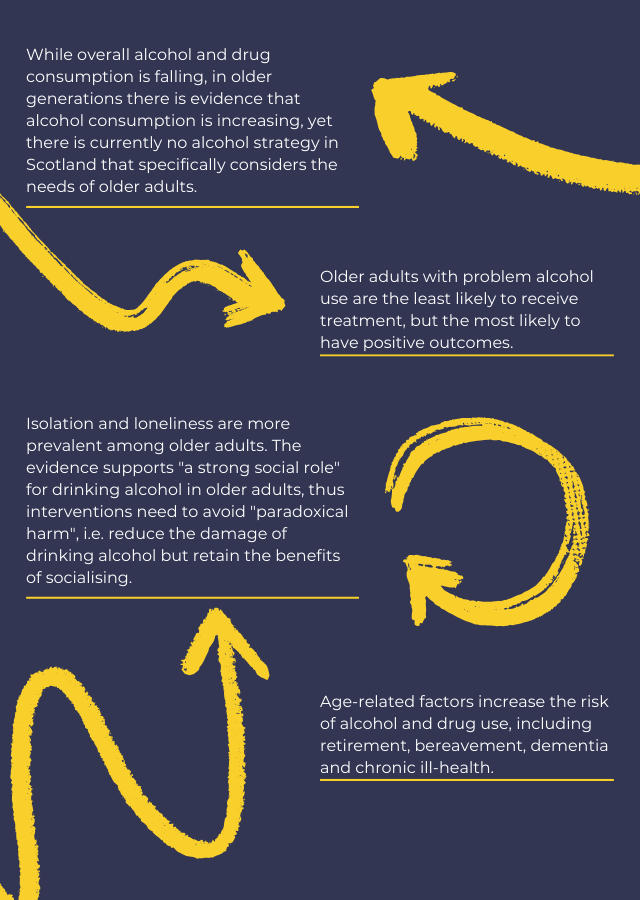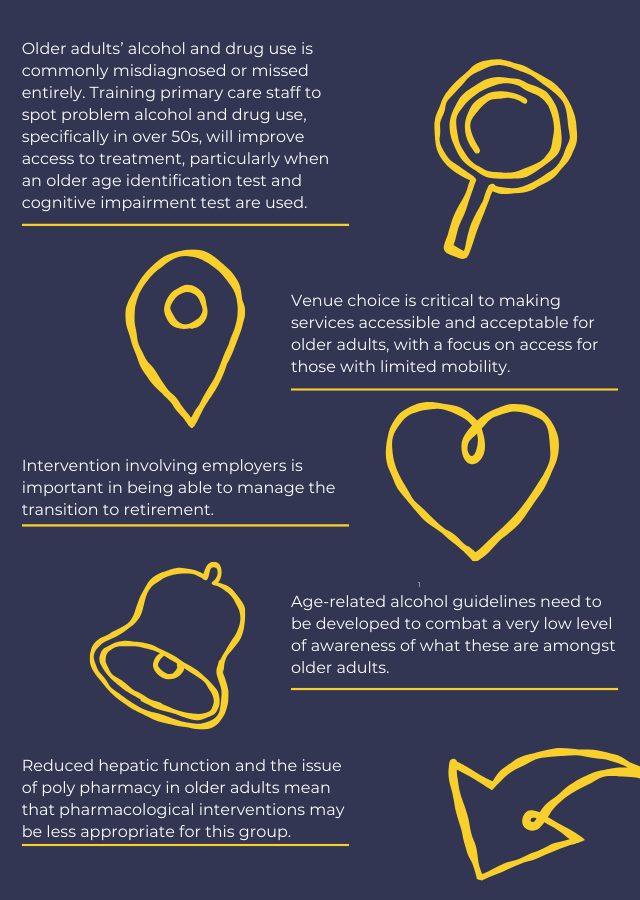
This is a briefing on what works for older adults in alcohol and drug prevention. For the purposes of this briefing, older adults have been defined as anyone aged 50 and over. However, it is important to note that there is considerable diversity within this group, and there is thus a large crossover between this briefing and the adults briefing. This means that some older adult interventions will be suitable for those under the age of 50 (Adult Evidence Briefing), and equally that some interventions highlighted in the adults briefing will be suitable for those aged 50 and over. Which interventions are most appropriate will depend on the issues that an individual is presenting with and should be person-centred (Consider Themes).
In this evidence briefing, older adults have been defined as anyone aged 50 and over. At present, the proportion of older people with a substance use problem continues to rise more rapidly than can be explained by the rise in the proportion of older people in the UK;
Older adults should be included as a distinct group within alcohol and drug strategies, and their lived experience should be used to help design effective services;
Need to Know and Key Findings
- Good Practice
- Potential Stakeholders
- Alcohol and drug services
- Geriatric services
- Community services
- Allied health professionals
- Employers
- Pain management services
- Policy teams
- General Practitioners
- Full Evidence Briefing
To view the full Evidence Briefing for Older Adults please click HERE.

